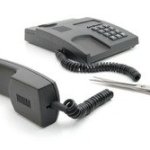MORE AT kiplinger
The BBB reports that scammers are calling people and claiming to work for a local electric, water or gas company. The callers tell people that they're late on a utility bill and that their service will be cut off if they don't pay immediately. Then they instruct people to purchase a prepaid debit card to pay their bill and call them back with the card number. Thieves then drain the value from the card.
Scammers have turned to prepaid debit cards recently because wire transfer services have increased their fraud detection systems -- making it more difficult for them to use this once-popular method of stealing money from people. Scammers also like prepaid debit cards because they don't have to show a photo ID to collect or spend money on the cards.
For help spotting a utility scam, the BBB offers these tips:
It's a red flag if you are asked to pay by prepaid debit card. Utility companies usually accept a check or credit card. If you pay with a prepaid debit card, the transaction cannot be reversed, according to the BBB.
Watch out for high-pressure tactics, such as threats to cut off your service unless you make an immediate payment. End the call then call the customer service number on your utility bill to ensure that you speak with a real representative.
If someone comes to your home claiming to be from your utility company, ask for identification. Do not let the person in your home if you did not schedule a service appointment. Call the utility company to confirm that it sent someone to your home.
Also, a utility bill scam that began last year has resurfaced. Utility companies in several states, including Kentucky and Tennessee, have received reports from customers who have received calls claiming that the federal goverment will help pay their electric bills. Click here to learn more about this utility bill scam and how to avoid it.












1,204 comments